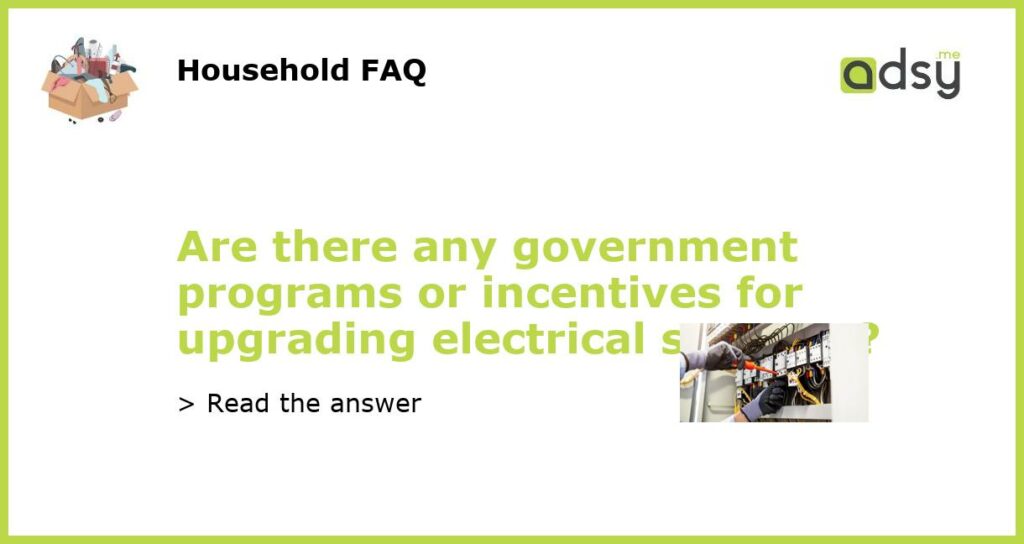Government programs and incentives for upgrading electrical systems
Upgrading electrical systems in homes or businesses can be a costly endeavor. However, many governments recognize the importance of modernizing electrical infrastructure for safety, energy efficiency, and sustainability reasons. As a result, various government programs and incentives have been put in place to encourage and support the upgrade of electrical systems. These programs and incentives differ from country to country and even within regions or states, so it’s essential to research what is available in your specific area.
Energy efficiency rebates
One common type of government incentive for upgrading electrical systems is through energy efficiency rebates. These rebates often aim to encourage the use of energy-efficient appliances, lighting, and other electrical equipment. By upgrading to more efficient electrical systems, homeowners and businesses can reduce energy consumption, lower utility bills, and minimize their carbon footprint. Energy efficiency rebates may cover a portion of the cost of upgrading electrical systems or provide discounts on energy-efficient products.
Tax credits
In some countries, tax credits are available for upgrading electrical systems. These tax credits allow individuals or businesses to reduce the amount of income tax owed to the government. By installing energy-efficient electrical systems and equipment, taxpayers can claim these credits, resulting in potential savings. Tax credits can make the cost of upgrading electrical systems more affordable, incentivizing individuals and businesses to invest in modernization and reap the benefits of energy efficiency.
Government grants
Government grants are another type of incentive that can help offset the cost of upgrading electrical systems. These grants are typically awarded to organizations or individuals who meet certain criteria, such as being in a specific industry, working on a specific project, or demonstrating a commitment to energy efficiency. Government grants can provide funding for the installation of new electrical infrastructure, upgrades to existing systems, or research and development of innovative electrical technologies.
Loan programs
Loan programs offered by government agencies or financial institutions can also provide support for upgrading electrical systems. These programs allow individuals or businesses to borrow money at favorable terms to finance the cost of electrical system upgrades. The loans may have low interest rates or longer repayment periods, making it more affordable for individuals or businesses to undertake electrical system improvements. Loan programs can help bridge the financial gap and enable more people to take advantage of the benefits of modern electrical infrastructure.
Renewable energy incentives
Many governments have specific programs and incentives related to renewable energy, which can indirectly encourage electrical system upgrades. For example, incentives for installing solar panels or wind turbines usually require the upgrade of electrical infrastructure to support the renewable energy generation. These incentives may take the form of feed-in-tariffs, net metering programs, or renewable energy certificates, which can provide financial benefits or compensation for excess electricity generated and fed back into the grid. These incentives can make upgrading electrical systems more economically viable and support the transition to clean and sustainable energy sources.

